6 Places Mice Love to Hide in Your Basement
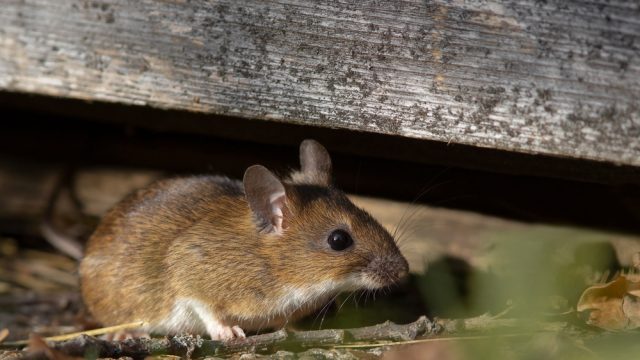
In many ways, your basement is a place where you’d expect to stash and hide away things of your own. Usually, this includes storage boxes, unused furniture, exercise equipment, or seasonal clothing that’s not being used. But because of where it’s situated, your lowest level can also be hiding unwanted animal and insect visitors from the outside world, including pests such as rodents. Their sneaky nature can sometimes make it hard to tell if there’s an infestation starting in your home. But according to experts, there are a few places where mice will be most likely to hide in your basement. Read on to see where pests love to stash themselves away in your subterranean level.
READ THIS NEXT: If You Notice This Smell at Home, You May Have Mice, Experts Warn.
1
Dead zones in construction.
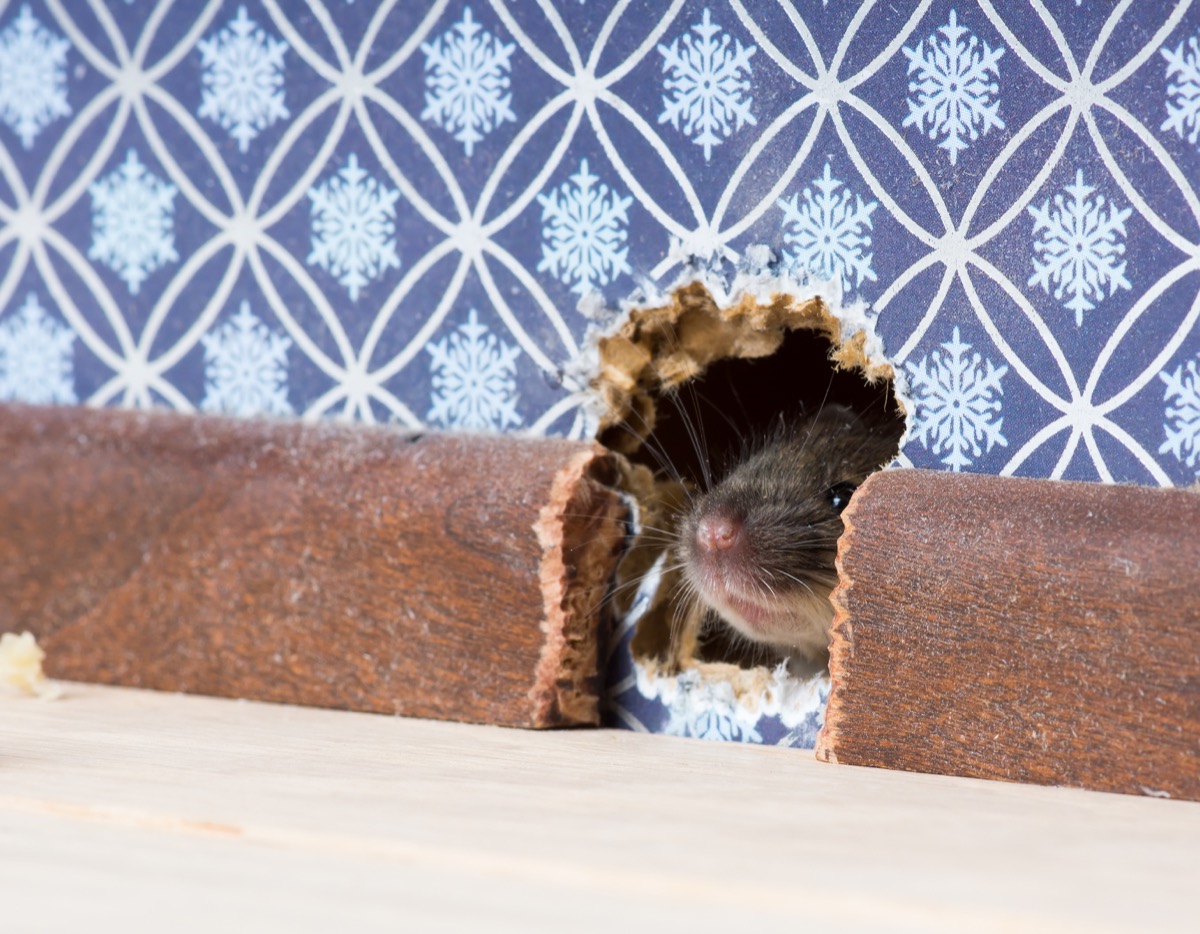
Certain spaces in your home are empty by design, whether it’s for concealing wiring and plumbing or unneeded space in your home’s foundation. But according to experts, this is the ideal location for a rodent to stash themselves away.
“Mice like to hide in remote, safe places,” Shawn Robinson of Delta Pest Services tells Best Life. “They often hide in crawl spaces and basement walls,” especially if there’s an accessible gap into the space.
But don’t think just because a particular area is closed off doesn’t mean a rodent won’t find their way inside. “In some cases, mice will even chew holes and start living in your walls,” Carley Church of Getem Services tells Best Life.
2
Cluttered storage spaces.
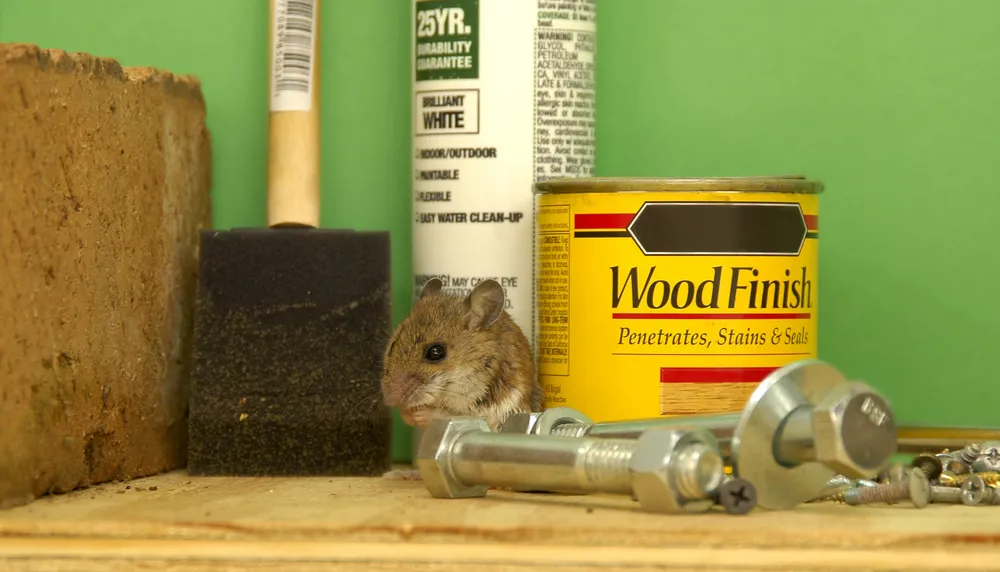
Your basement can naturally become the place you turn to when stashing away boxes of items you don’t need every day. But if you’re careful, your clutter could be creating a perfect habitat for rodents to turn into a home—especially if you’re using cardboard containers.
“Mice like to build their nests in places that are dark, secluded, and easy to hide in, which often includes storage places,” Church says.
If you’re looking to avoid issues, try to organize your belongings on shelves or stack them tall against a wall instead of in a large pile. It may also be best to swap out your paper-based boxes for rigid plastic to minimize gnawing and easy access to a hiding space within a hiding space.
RELATED: For more up-to-date information, sign up for our daily newsletter.
3
Plumbing and ductwork.
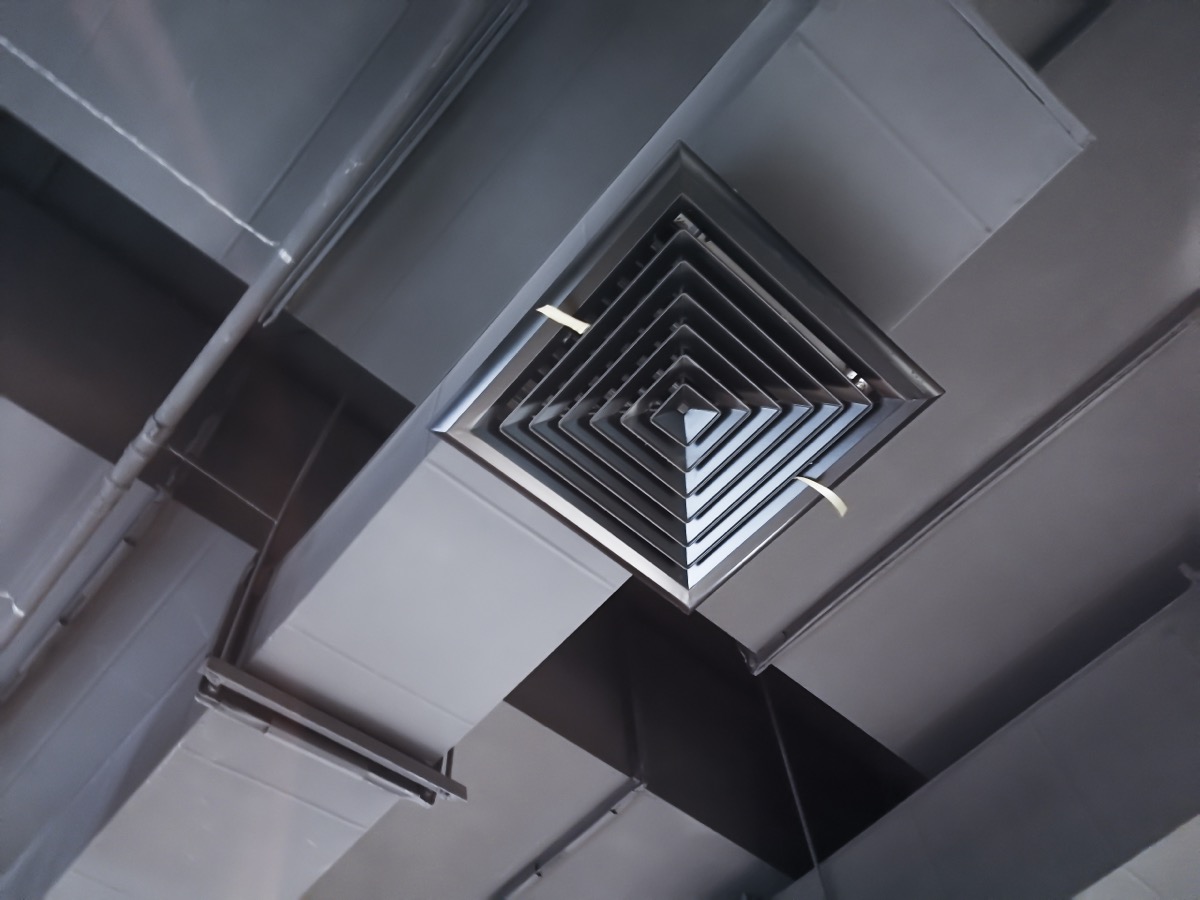
Pipes and vents are sturdy materials that often hug walls and ceilings. Because of this, mice also tend to use them as their own personal superhighways to zip undetected across a room or between spaces, Brian Olson, founder of the bugman, tells Best Life. And while vents can provide much-needed warmth when building a nest, pipes might unintentionally offer one other thing necessary for survival.
“Mice love dark, damp environments,” Mark Constantino, owner of Arkadia Eco Pest Control in New Jersey, tells Best Life. “Any leaks found in a basement can lead to the perfect conditions for mice and rats because of the constant source of water.”
4
In and around furniture.
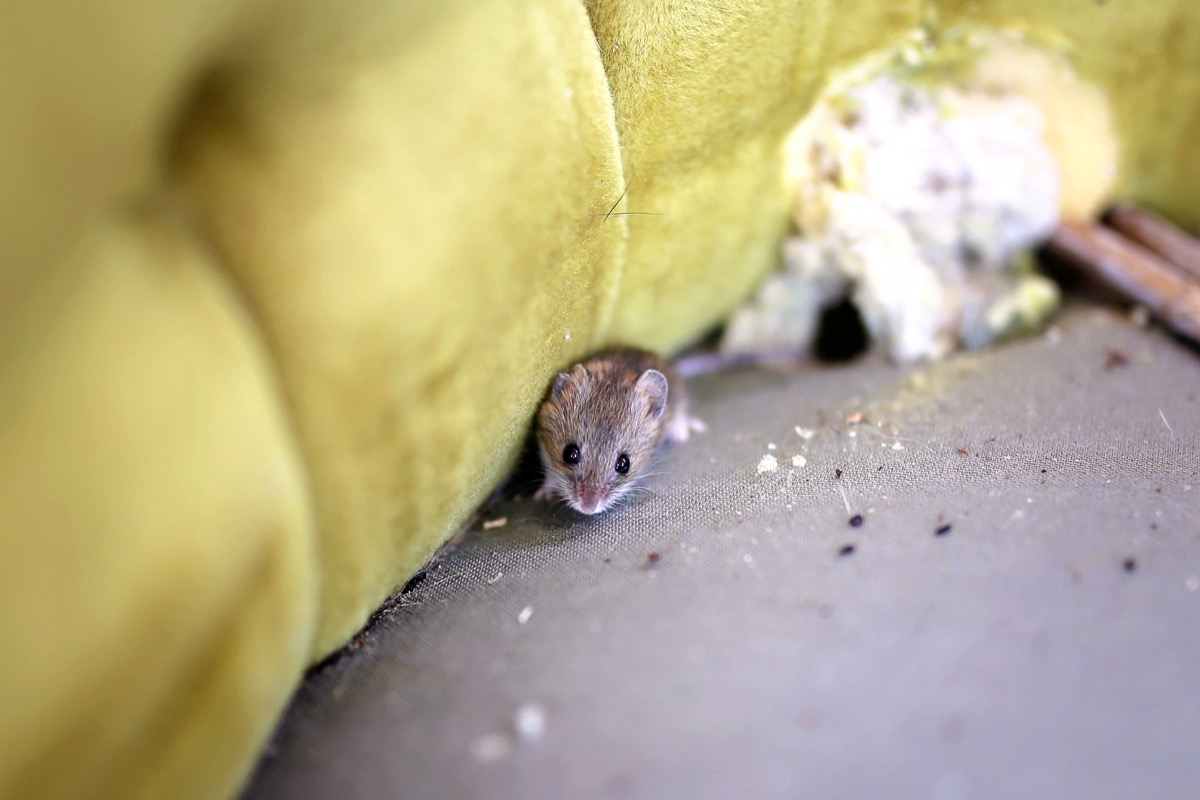
Taking one peak under your upstairs furniture usually shows how rarely you look beneath the pieces you actually use. According to Olson, unused or stored furniture in your basement also provides the perfect hiding place for rodents, thanks to its sturdy structure and soft materials.
But your old sofa may be exacerbating a mouse problem in more than one way. “If you store unused furniture like spare couches or chairs in your basement, you’re providing rodents with everything they need to build their nests,” Daren Horton, founder of Gecko Pest Control in Texas, tells Best Life. “They’ll burrow through and tear apart these items and use them as nesting material. They can even build their nests directly inside of old furniture.”
READ THIS NEXT: 6 Plants Attracting Mice to Your Home.
5
Beneath appliances.
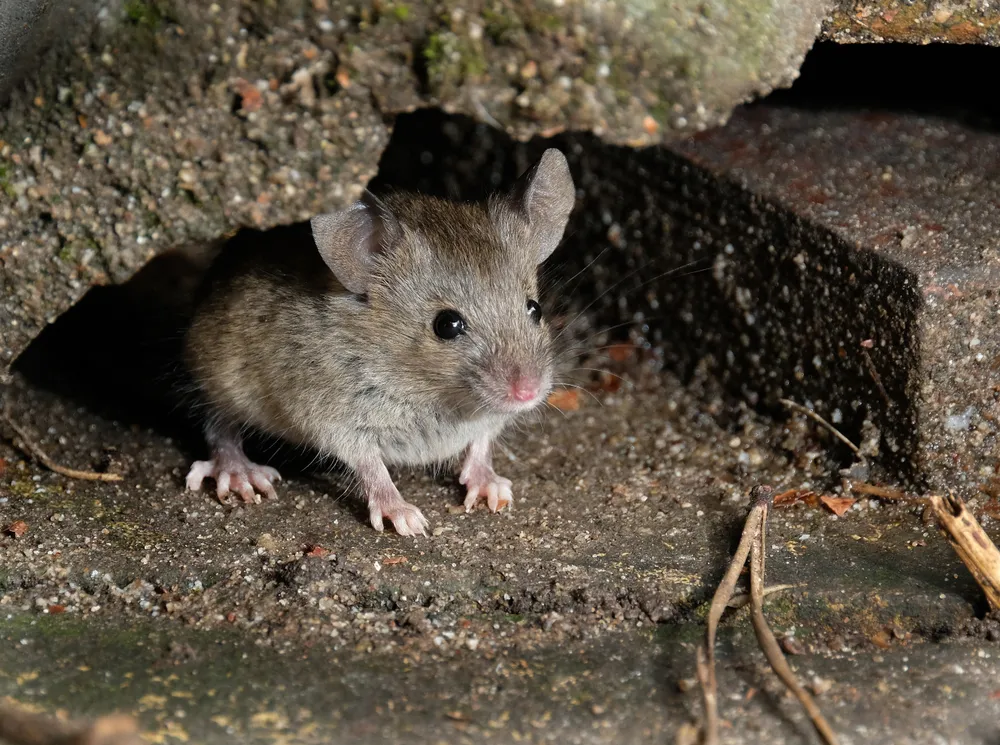
Basements often house some of the heavy equipment required to run a house, such as a furnace or hot water tank. But these same machines could also provide an inviting hiding place for mice—especially if your basement doubles as a laundry room.
“Mice like to hide under appliances like water heaters or laundry machines because they like the heat that it offers,” Robinson tells Best Life.
6
Near heaters.
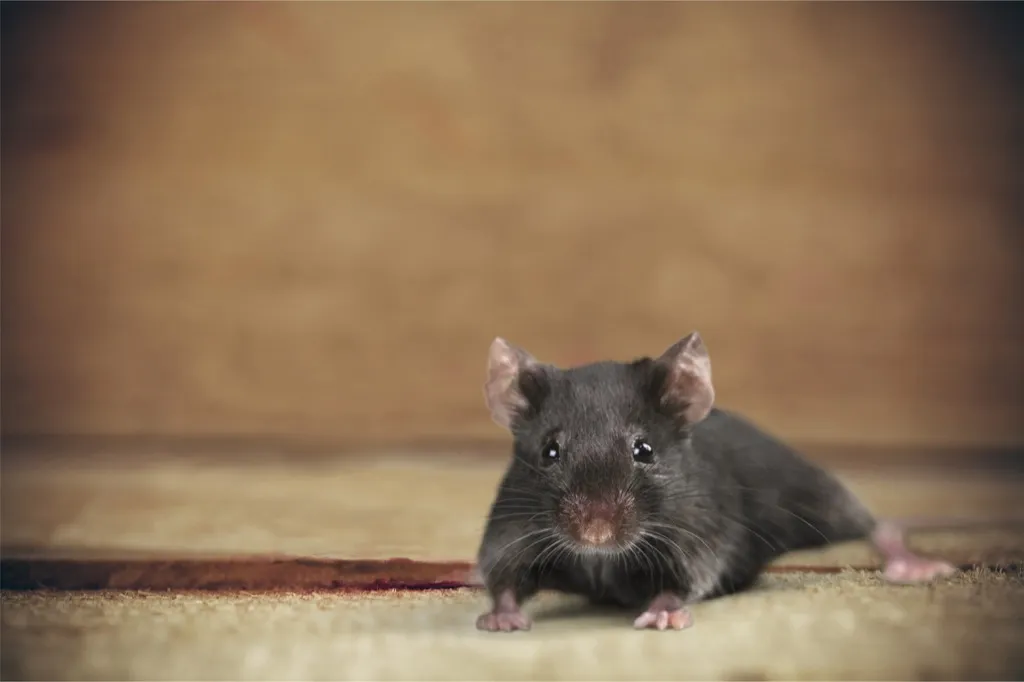
Whether you have a finished basement or just run a space heater to keep your pipes from freezing in the colder months, having a heat source in your lower level can be majorly enticing for rodents looking to hide out.
“When the weather gets cold, mice will do anything they can to seek warmth,” Olson tells Best Life.
To avoid giving mice a cozy place to stay, try to keep all heating units flush with the wall or properly encase them. If you’re using a space heater, keep it away from the room’s perimeter or from any nearby boxes or appliances that could provide a hiding place for mice, experts advise.
READ THIS NEXT: Storing This in Your Pantry Is Attracting Mice to Your Home, Experts Warn.